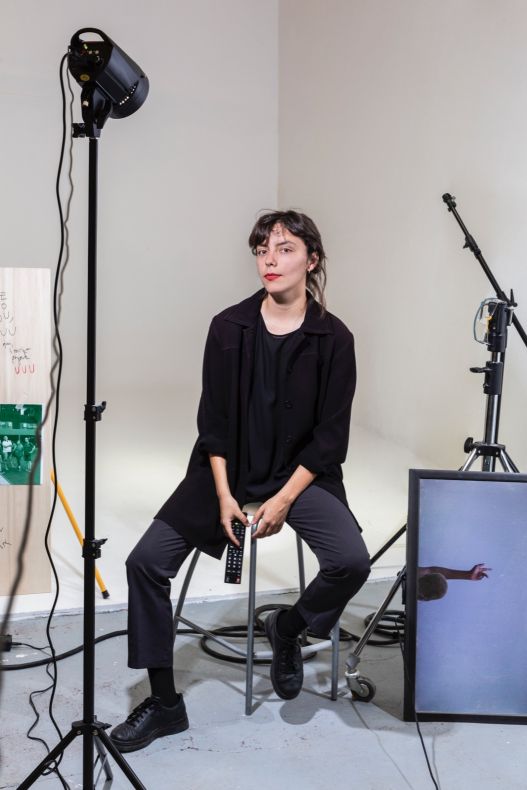Research Process: Mar Reykjavik (2025)

“Affective Translation” is a term proposed by the artist Mar Reykjavik as a working methodology aimed at transgressing the hegemonic criteria of translation. In order to subvert the domination and domestication of languages and the idea of language, Affective Translation is proposed from a situated condition, empathetic with the subjectivities of a body that interprets and the sociopolitical constructions that besiege and unfold the transcribed languages.
From audiovisual formats, Mar Reykjavik’s work explores issues such as translation, the conditions and aesthetics of a dissident vision of cinema, and fiction as a process of identity formulation.
Explain a little bit the starting point of your research?
The research project I am currently working on originates in a writing and translation practice that is alternative to the official: affective translation.
Affective translation is a language operation in which we replace the effective dimension of translation with an affective one. It is an exercise that attends to the singularity of the person translating and of the languages involved—one that subverts the logics of linguistic domination and power, and that reconsiders the ownership of words.
This project is part of an ongoing investigation into affective translation—a concept I have developed through works such as A gap between two adjacent teeth / Una font que raja for the exhibition Scene I. Making Landscape (IVAM, 2024), Va el buzo, babbling (Editorial Tejido Ajado, 2024), el texto será la imagen aguantando (Tabakalera, 2024), Leyendo / Legeak egitea (Emedeene, 2024), and the production of To the wind, an essay on translation and censorship filmed at Riksmixningsverket, Stockholm, 2025.
How are you planning your time for the research here in Stockholm?
My time in Stockholm includes writing a script, rehearsals, video documentation, and its subsequent editing.
Relocating to carry out this process allows me to live in a context where the language spoken is one I do not understand. This unfamiliarity introduces an abstract condition to my practice, helping me understand the loss of code and the vulnerability of not knowing the language as a form of linguistic abstraction—one that forces me to take a position.
At the moment, I am writing a script for three or four voices and for three or four cameras. The rehearsals of this script will be recorded. These recordings will highlight variations generated by the conditions, singularities, mistakes, and mistranslations of the performers. The notion of rehearsal is a continuous thread in my work: rehearsal understood as a space for testing. The scripts function like scores that enable the performers to generate situations in which their micropolitics and minor gestures are exposed.
We will film in Stockholm the material for a video installation that will make explicit certain language operations: affective translations between English, Catalan, Swedish, and other languages; exercises in encryption, doubling, and folding of personal codes and idioms as a way to escape (self-)censorship and the processes of linguistic and identity-based minoritization and invisibilization.
We would like to thank Fundación Botín and their Art grants program for the support to Mar Reykjavik’s research.